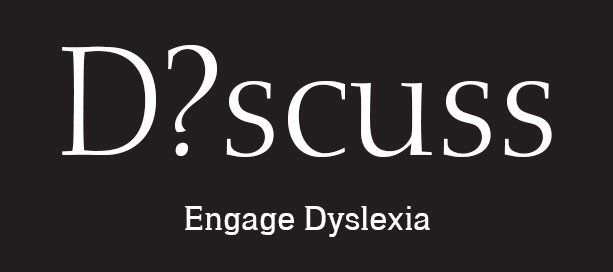Barbara Corcoran: 50% of the judges on ‘Shark Tank’ are dyslexic
iSpeech.org

“Did you know that 50% of Sharks on #SharkTank are dyslexic?”
Barbara Corcoran, self-made millionaire and investor on ABC’s “Shark Tank,” asked her followers via LinkedIn on Monday. She, along with Sharks Daymond John and Kevin O’Leary, have talked about struggling with dyslexia their entire lives.
And “it’s not a coincidence,” Corcoran added– 35% of entrepreneurs in the U.S. are dyslexic, according to a recent report by Cass Business School professor Julie Logan.
“As a Dyslexic, I find it fascinating that the Dyslexic sharks outnumber the non Dyslexic sharks,” John tweeted in January, including guest Shark Richard Branson in his count.

As a Dyslexic, I find it fascinating that the Dyslexic sharks outnumber the non Dyslexic sharks #Facts https://twitter.com/kevinolearytv/status/1089717196954185730 …Kevin O'Leary aka Mr. Wonderful✔@kevinolearytvNot everyone knows, I've struggled with severe dyslexia since I remember. My family and teachers weren't sure I'd ever graduate. In the 60s, my educational therapists helped me restore his shattered self-confidence & THRIVE. Education is near and dear to me. #MontiKids #SharkTank1,10212:14 AM - Jan 28, 2019Twitter Ads info and privacy201 people are talking about this
“Not everyone knows, I’ve struggled with severe dyslexia since I remember,” Shark O’Leary tweeted in January. “My family and teachers weren’t sure I’d ever graduate. In the ’60s, my educational therapists helped me restore this shattered self-confidence & THRIVE.”
Despite the challenges they’ve faced, all four Sharks have said having dyslexia contributed to their success. Here’s how.
Dyslexia ‘made me a millionaire’
Due to her undiagnosed dyslexia, “I was labeled the ‘dumb kid’ that couldn’t read or write, coming all through to when I was graduating in high school,” Corcoran told CNBC Make It.
But she never let that, or the bullying she endured because of it, deter her from achieving success. In fact, Corcoran says dyslexia “made me a millionaire,” in her LinkedIn post.
“My teachers and classmates constantly calling me dumb only made me more determined to prove myself,” Corcoran said on LinkedIn. “I worked harder than anyone to overcome my ‘weakness’ and it’s a large part of my success.”
And Corcoran ultimately built a $66 million real estate empire from what started as a $1,000 loan.
“I couldn’t have gotten there without those years of daydreaming,” she said on LinkedIn, adding that the bullying gave her increased empathy and kindness for others, which made her a better leader.
‘The most important thing my dyslexia taught me’
Growing up, John excelled in math and science, he told the Yale Center for Dyslexia and Creativity in December 2015, but struggled with reading and spelling.
“Literally, I couldn’t spell the word ‘because’ for 4 or 5 years,” John told the Yale Center. “I wouldn’t know how to spell my middle name, Garfield. When I read a book, I got tired.”
And as his struggles worsened, a professional diagnosed John with a learning disorder, he said – but his parents did not agree.
“My mother didn’t believe it,” he told the Yale Center. “She just said I wasn’t applying myself. She felt I was brilliant, because she would work with me on a daily basis and see my abilities.”
Despite this, John says dyslexia helped him achieve success and made him work harder.
“I see the world in a different way than most people and for me that’s been a positive thing,” he said in an Instagram post on March 6. “I felt like I had to work harder to understand what others easily understood.”
“I had to go out there and DO it, instead of just hearing about it. But at the end of the day, that’s what made me the entrepreneur I am today. No matter how we all learn, we learn by doing. By acting. By practicing,” John said on Instagram.
And at age 23, John started apparel company FUBU, which grew into a fashion empire (which would eventually be worth $6 billion, according to John).
John says “the most important thing my dyslexia taught me” was “not to let it stand in my way or be an excuse.”
Having dyslexia is a ‘superpower’
O’Leary recalls struggling with dyslexia from a very young age.
“I couldn’t read at the early ages, which gets you pushed back,” O’Leary told CNN Business in April 2016. “They were very tough times, because I was really wondering if I was ever going to make it. I was failing.”
“There was a lot of panic in my own family. My teachers weren’t sure.”
After working with educational therapists, O’Leary was able to build back his confidence, he said. And as an adult, he views dyslexia as a “superpower.”
“The way to look at dyslexia is as a unique power instead of an affliction,” O’Leary told Entrepreneur in June 2016. “Very few people have the abilities that dyslexics have. If you look down the road, as they grow, what happens to dyslexic men and women is they become very successful in business.”
In 1986, O’Leary started SoftKey, which later was re-named The Learning Company, from his basement, and sold it to the Mattel Toy Company for a reported $4.2 billion in 1999.
“Dyslexia gives you some really unique perspectives and abilities that I’d call superpowers.”
